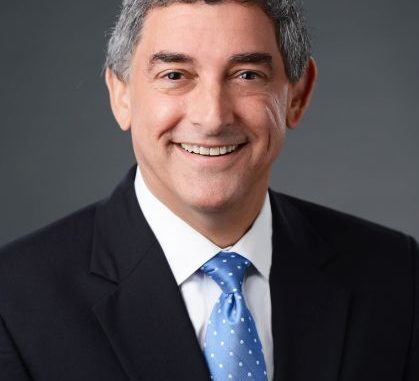
Editor’s Note: Early voting for the Oct. 24 Louisiana gubernatorial election is going on now at parish registrar of voters offices through this Saturday, Oct. 17.
Four major candidates are vying to replace Gov. Bobby Jindal: Republicans Scott Angelle, Jay Dardenne and David Vitter, and Democrat John Bel Edwards.
Louisiana Sportsman magazine asked each candidate to answer some basic questions about how their administration would approach outdoor issues, ranging from the Louisiana Department of Wildlife and Fisheries to coastal erosion.
We will run each candidate’s responses online this week — today we feature Jay Dardenne.
No matter who you ultimately select, please make sure to go out and vote.
Jay Dardenne, Republican
Current position: Lieutenant governor
Q: Are you an outdoorsman? If so, what’s your favorite species to hunt/fish? What’s the largest fish you’ve caught or deer you’ve killed?
A: I am an occasional duck hunter and freshwater fisherman. The largest fish (I’ve caught) is probably a 20-pound bull red.
Q: What are your thoughts on choosing a secretary for the Louisiana Department of Wildlife and Fisheries? Should the secretary be a biologist? Should he/she be from Louisiana? What qualifications will you look for?
A: The secretary of the Louisiana Department of Wildlife and Fisheries plays an integral role in managing and protecting our wildlife and natural resources.
Louisiana is host to a unique ecosystem, and although having the skills and knowledge of a biologist would be helpful, I will be focused on someone who understands and appreciates what Louisiana has to offer and who has the necessary skills to perform efficiently in the job.
I recognize that there always will be a political overlay to this position, and it will be important to have someone who will listen to everyone and work closely with (Louisiana Wildlife and Fisheries) Commission members to protect and enhance our Sportsman’s Paradise.
He or she will be a Louisianian and someone who understands the challenges we face with restoring coastal Louisiana and protecting the interests of those who enjoy and appreciate the recreational bounty of our state.
Q: What do you see as the primary role of the Louisiana Department of Wildlife and Fisheries?
A: The Louisiana Department of Wildlife and Fisheries is the governmental entity charged with managing and preserving our land and the fish and wildlife that live within it.
Stewardship of these natural resources and educating our people about our precious land and water resources, along with enforcement, must be the primary focus of the department.
Q: The Louisiana Department of Wildlife and Fisheries is largely self sufficient, receiving little, if any, state General Fund money. Do you think that is the best formula? Do you support General Funds being sent to the agency?
A: Yes (self-sufficiency is the best funding formula). It is difficult to foresee state general fund dollars being directed to the department, since they are able to sustain their responsibilities with self-generated revenues.
I anticipate having yet another severe financial challenge immediately upon taking office. We probably are facing mid-year budget cuts, and will have to react immediately to the challenges of the current fiscal year.
My long-term goal is to stabilize and restructure our budget. At that point, it may be possible to direct some state general funds to the department, but I believe it will continue to be financed primarily with self-generated revenue.
Q: As you may know, Gov. Bobby Jindal’s administration raided many constitutionally dedicated funds, including the LDWF’s Rigs to Reef Program, in his attempts to balance the budget. Do you support such moves? Would you push to return the $27 million taken from the Rigs to Reef Program?
A: I do not support the raiding of this fund to balance the budget. Under my administration, we will not raid constitutionally dedicated funds or rely on one-time revenue to fund recurring needs of government.
I would hope to return the money drained from the Rigs to Reef Program, which is an important part of our conservation efforts, allowing the energy industry to contribute to the gulf coast in a tangible, meaningful way.
I am committed to enabling the program to receive the necessary funding to continue its important work.
Q: Coastal erosion is one of the most-pressing environmental issues facing this state. How would you prioritize work to stabilize the fragile marshes along the coast, and what would be your first step in this area if you are elected governor?
A: The marshes play an important role in preventing further erosion of our coastline. My first step will be to oversee the implementation of the Master Plan and assure that all federal funds intended for the implementation will be used for this purpose.
This includes dollars from the Restore Act, the GOMESA legislation and the BP settlement. There will be a consent decree from the federal court directing the use and purpose of the settlement dollars. I expect that the order will be clear in directing these funds to address our restoration and hurricane protection efforts.
In the event of any ambiguity in the order, I will interpret it to make certain that these dollars assist us in implementing the Master Plan. The state has invested a huge amount of time, effort and money into putting forward the best possible scientific-based plan for saving our coastline. We now must prioritize implementation of that plan.
I have been an advocate for saving and restoring our coastline since my days in the (state) Senate. I authored the constitutional amendment, approved by the voters, to direct 20 percent of any funds realized from the sale of the tobacco settlement to the Coastal Protection and Restoration Authority. I coauthored the Dupre Amendment, which also passed overwhelmingly, that provides authorization for the state to spend non-recurring revenue on wetlands conservation and restoration.
I have chaired two initiatives of the America’s Wetland Foundation, namely Building Resilient Communities and The Big River Works, both of which resulted in comprehensive reports submitted to Congress and publicized throughout Louisiana.
Click here to read editor Andy Crawford’s editorial about the gubernatorial election.


